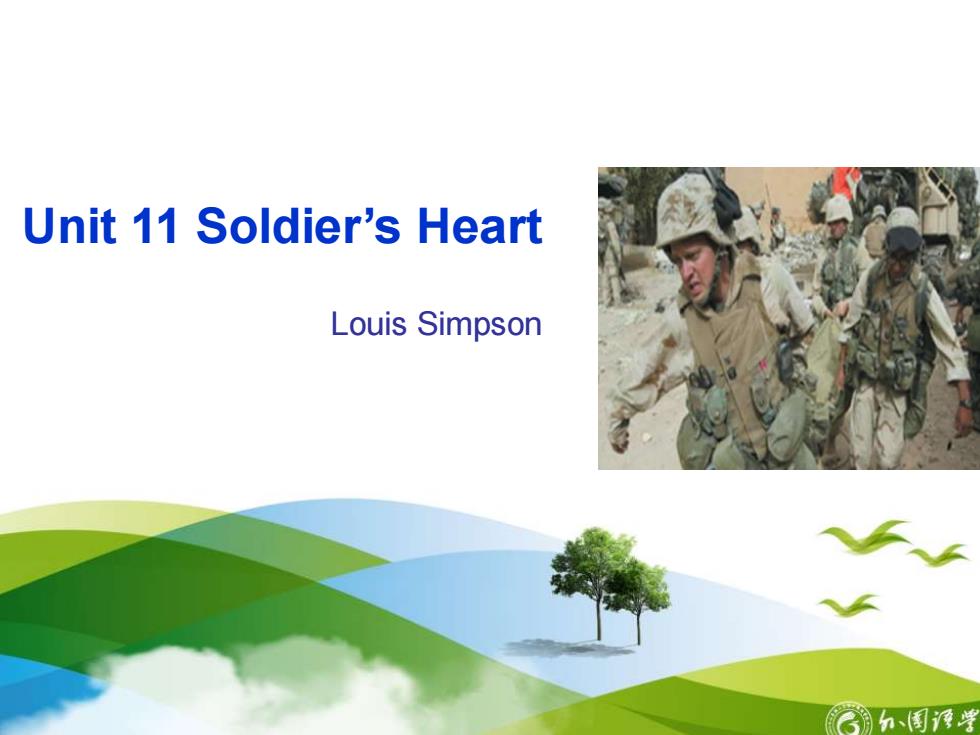
Unit 11 Soldier's HeartLouisSimpson清尔園渔学
Unit 11 Soldier’s Heart Louis Simpson
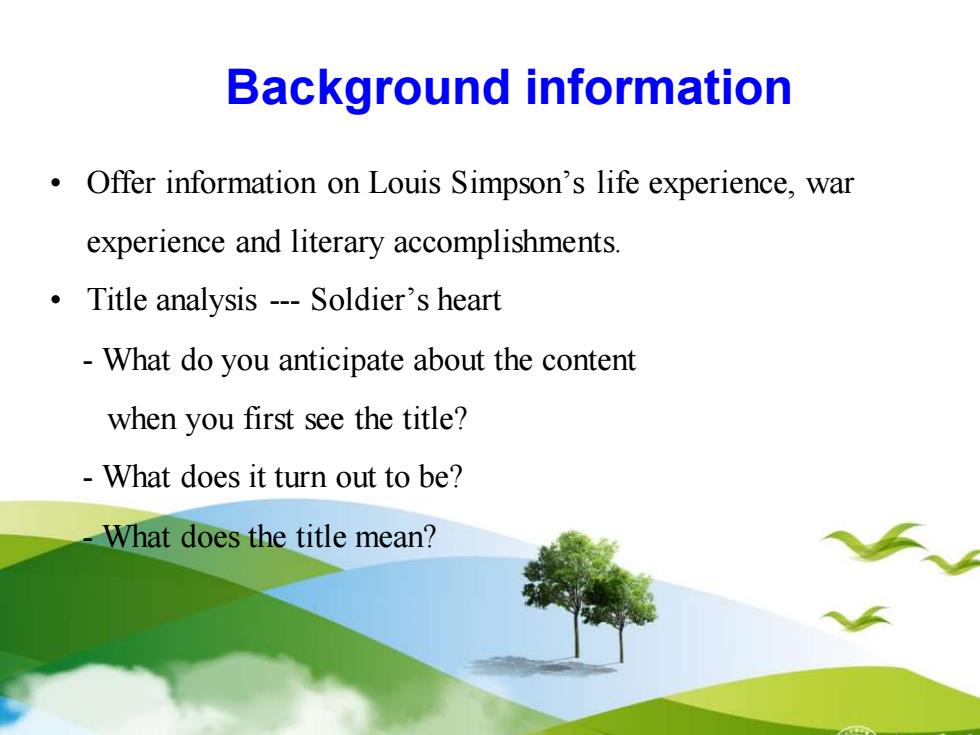
Background informationOffer information on Louis Simpson's life experience, warexperience and literary accomplishmentsTitle analysis --- Soldier's heart- What do you anticipate about the contentwhen you first see the title?- What does it turn out to be?What does the title mean?
• Offer information on Louis Simpson’s life experience, war experience and literary accomplishments. • Title analysis - Soldier’s heart - What do you anticipate about the content when you first see the title? - What does it turn out to be? - What does the title mean? Background information
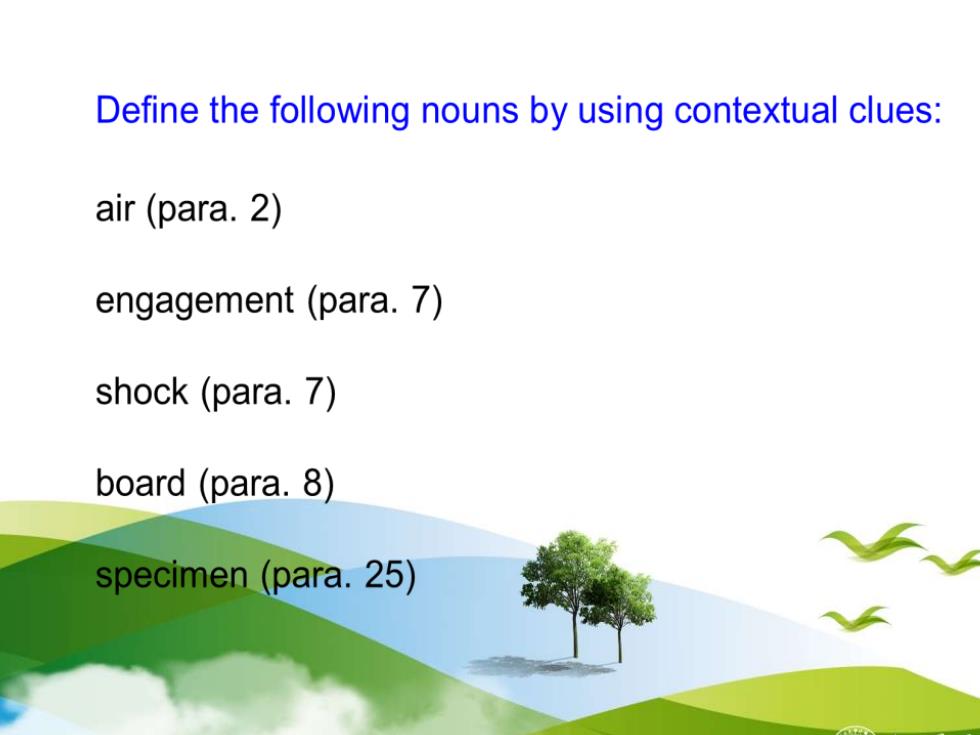
Define the following nouns by using contextual clues:air (para. 2)engagement (para.7)shock (para. 7)board (para. 8)specimen(para.25)
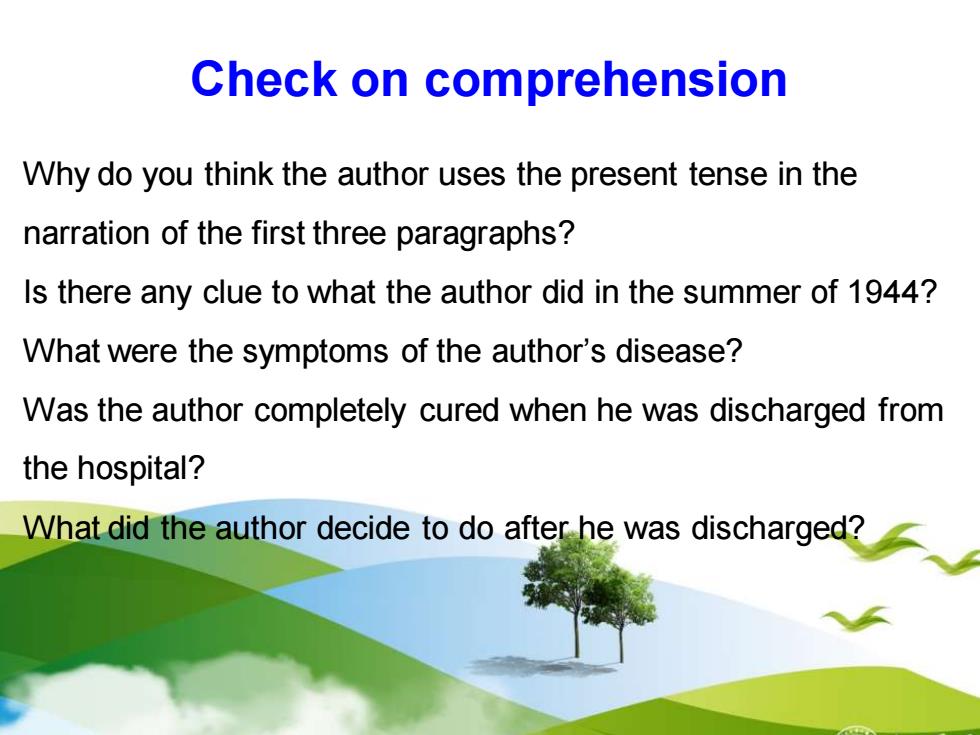
Checkon comprehensionWhy do you think the author uses the present tense in thenarration of the first three paragraphs?Is there any clue to what the author did in the summer of 1944?What were the symptoms of the author's disease?Was the author completely cured when he was discharged fromthe hospital?What did the author decide to do after he was discharged?
Check on comprehension • Why do you think the author uses the present tense in the narration of the first three paragraphs? • Is there any clue to what the author did in the summer of 1944? • What were the symptoms of the author’s disease? • Was the author completely cured when he was discharged from the hospital? • What did the author decide to do after he was discharged?
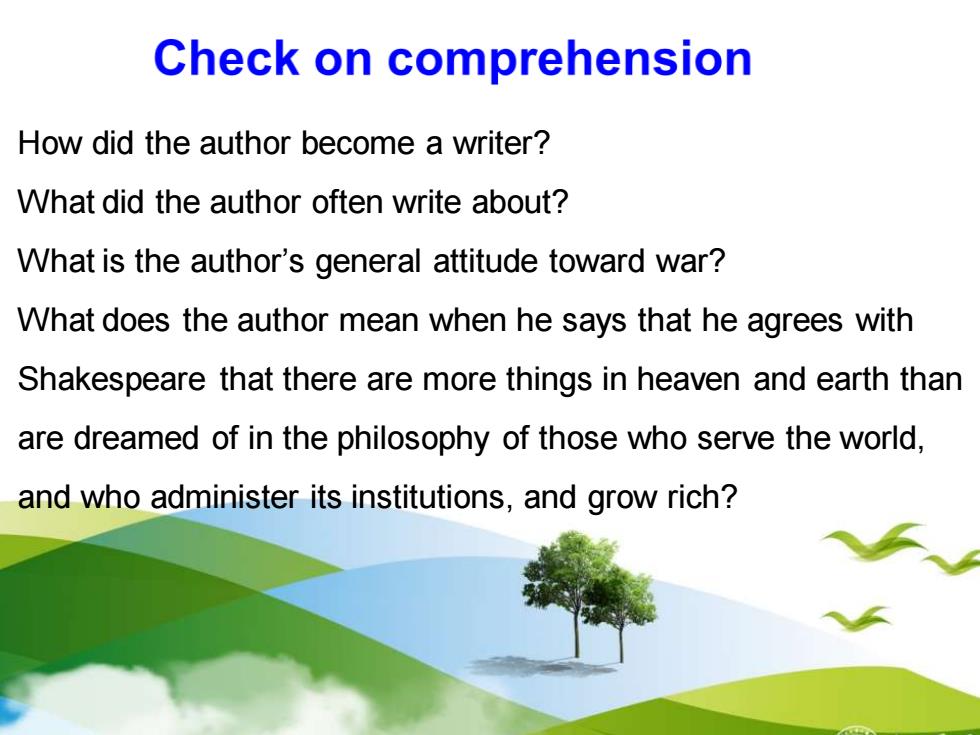
Check oncomprehensionHow did the author become a writer?What did the author often write about?What is the author's general attitude toward war?What does the author mean when he says that he agrees withShakespeare that there are more things in heaven and earth thanare dreamed of in the philosophy of those who serve the world,and who administer its institutions, and grow rich?
• How did the author become a writer? • What did the author often write about? • What is the author’s general attitude toward war? • What does the author mean when he says that he agrees with Shakespeare that there are more things in heaven and earth than are dreamed of in the philosophy of those who serve the world, and who administer its institutions, and grow rich?